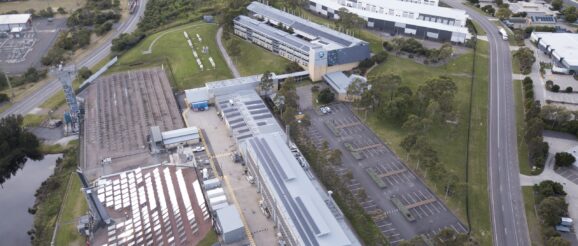Australian, international research institutions to spearhead clean energy innovation

The US National Science Foundation (NSF) and partner funding agencies from Australia, Canada, and the UK have awarded $76.4 million for the inaugural Global Centers Competition, aiming to establish international, interdisciplinary research centres focused on climate change and clean energy.
The centres will also provide students and early-career researchers with world-class education and training while promoting diversity, equity, inclusion, and accessibility.
“NSF builds capacity and advances its priorities through these centers of research excellence by uniting diverse teams from around the world. Global Centers will sync talent across the globe to generate the discoveries and solutions needed to empower resilient communities everywhere,” NSF Director Sethurman Panchanathan said.
Global Centers will collaborate on interdisciplinary research to assess and mitigate climate change’s societal impacts. Their activities will inform the development of innovative solutions and technologies, such as enhancing information awareness, advocating for decarbonisation, creating tailored adaptation plans, using artificial intelligence to study nature’s responses, addressing transboundary water issues, and scaling next-generation technologies for net zero.
Global Centers are supported in part by a multilateral funding initiative led by the NSF and four partner funding organisations: Australia’s CSIRO, Canada’s Natural Sciences and Engineering Research Council (NSERC) and Social Science and Humanities Research Council (SSHRC), and the United Kingdom’s UK Research and Innovation (UKRI).
The countries have pledged more than AU$118 million in funding to the NSF Global Centers program over five years to address climate change concerns as the globe progresses towards net zero emissions.
Among the projects earmarked by the collaboration, two are led by Australian innovations — the Electric Power Innovation for a Carbon-free Society Centre (EPICS Centre) and the Global Hydrogen Production Technologies Centre (HyPT Centre).
The EPICS Centre, a joint project involving the US, UK, and Australia, aims to develop transformative computing, economic strategies, engineering solutions, and policy for a renewable energy power grid, led by CSIRO, AEMO, the University of Melbourne, and Monash University in Australia.
The University of Melbourne EPICS Centre Chair and Principal Investigator Professor Pierluigi Mancarella said the EPICS Centre presents a unique chance to collaborate with leading international institutes in the US and UK, utilising cutting-edge research to tackle the pressing scientific challenges faced by Australia and other global jurisdictions in the energy transition towards net zero.
“These challenges range from guaranteeing stable and secure system operation in the presence of ultra-high penetration of variable energy sources and distributed energy resources, most of which are based on power electronic interfaces, to identifying reliable and resilient investment paths across the whole energy system in the presence of deep, long-term planning uncertainty,” Professor Mancarella stated.
AEMO Executive General Manager Operations Michael Gatt noted that globally, there is a collaborative approach to support the secure running of power networks challenged by the rapid shift to inverter-based variable renewable energy.
“This research funding will contribute to identifying and resolving engineering and system issues that facilitate the continued transformation of Australia’s energy system,” Gatt added.
Meanwhile, the HyPT Centre is advancing net-zero hydrogen production through three innovative technologies: renewable energy-integrated water electrolysis, methane pyrolysis with solid carbon co-products, and solar-driven water splitting. Australia’s University of Adelaide, Flinders University, and Curtin University represent Australia in this international collaboration.
University of Adelaide Deputy Vice-Chancellor (Research) Professor Anton Middelberg has expressed his delight in collaborating with CSIRO and other partners to advance the commercialisation of a revolutionary hydrogen production technology.
“Our world-class researchers will be collaborating on finding solutions that will help create a more sustainable future for society,” Professor Middelberg said.
CSIRO Acting Chief Executive Kirsten Rose commented, “CSIRO is proud to stand alongside numerous Australian research organisations to combine our shared expertise strengthening our national response to accelerate the transition to a cleaner, sustainable energy future.”
“Partnering with the NSF’s Global Centers means Australia remains at the global forefront of work to build a clean hydrogen industry, build integrated and equitable energy systems, and partnering with regions and industries for a low emissions future,” Rose added.
The post Australian, international research institutions to spearhead clean energy innovation first appeared on Australian Resources.
